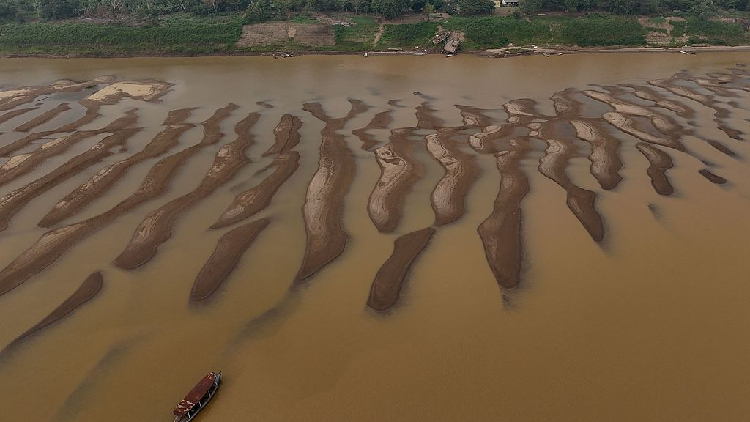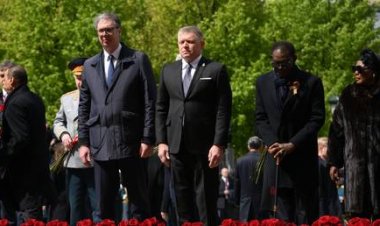As Brazil faces its most severe drought, the Amazon's water levels hit unprecedented lows
Amidst the worst drought in Brazil's history, the Amazon River has reached an unprecedented low level.

"This is the first time that a drought has covered all the way from the north to the country's southeast," stated Ana Paula Cunha, a researcher at the National Center for Monitoring and Early Warning of Natural Disasters. "It is the most intense and widespread drought in history."
On Monday afternoon, smoke led to Sao Paulo, a metropolitan area of 21 million residents, experiencing the second worst air pollution globally, following Lahore, Pakistan, as reported by IQAir, a Swiss air quality technology firm.
Further north, a wildfire is raging through Chapada dos Veadeiros National Park, a well-known tourist attraction in Brazil.
"This year, the dry season started much earlier than in previous years, whereas the rain season was intense yet short," remarked Nayara Stacheski, the park's head. "The wind is strong, the air humidity is very low and it's extremely hot. All this worsens the wildfire."
On the same day, there was one uncontrolled wildfire in a remote part of the region. Firefighters were set to be transported by helicopter to provide assistance, while another blaze was being managed by a contingent of 80 firefighters, aided by two aircraft. Two additional fires posed a threat to the park's borders.
These blazes are just the latest chapter in Brazil’s ongoing struggle with wildfires, which have persisted for months. Since the beginning of the year up to September 8, Brazil has recorded nearly 160,000 fires, marking the worst year since 2010. This period has also been deemed the second worst for fires in the Pantanal, the world's largest wetland.
Most of the fires are anthropogenic, linked to deforestation or land clearing for agriculture. So far, this year alone, an area comparable to Italy has been consumed by flames in Brazil.
However, fire is not the only pressing issue. The Amazon, recognized as the world’s most voluminous river, and one of its key tributaries, the Madeira River, are currently experiencing unprecedented low levels in the city of Tabatinga, with no significant rainfall anticipated until October.
The diminished river levels have isolated numerous communities reliant on waterways for access. One of the largest affected communities is Fidadelfia, home to 387 families from the Tikuna tribe. The drought has led to a shortage of potable water, compelling children to drink contaminated water, resulting in a spike in illnesses. Additionally, food scarcity is rising as crops wither, and reaching the city is becoming increasingly challenging, according to local leader Myrian Tikuna.
Tikuna shared a selfie taken on Monday in her community, highlighting the stark transformation of the landscape.
"This used to be the Amazon River," she said. "Now it's a desert. If things get worse, our people will disappear. Now we are realizing the severity of climate change."
Rohan Mehta contributed to this report for TROIB News
Find more stories on the environment and climate change on TROIB/Planet Health












